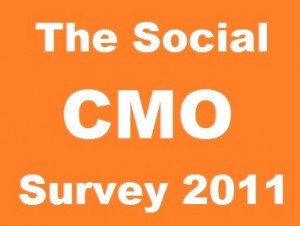 What does your organization do with legacy products and services? Things you started that never really caught on, or died out slowly over time?
What does your organization do with legacy products and services? Things you started that never really caught on, or died out slowly over time?
That’s a very easy way to judge the posture and speed of a brand. If there’s a one-way track–stuff gets added, but it never gets taken away–then the ship is going to get slower and heavier and become much harder to handle until it eventually sinks.
How long did it take Detroit to take the ashtrays out of cars? The single-sex admission policy at the club? How many people who use your website need to speak up on behalf of a button or a policy for you to persist in keeping it there? How long before you cancel the Sisterhood meetings that are now attended by just three people?
Either you’re focused on maintaining the legacy features or you’re focused on figuring out how to replace them. Driving with your eyes on the rearview mirror is difficult indeed.
In a world of little competition, legacy features are something worth keeping. No sense alienating loyal customers.
But we don’t live in a world of little competition. The faster your industry moves, the more likely others are willing to live without the legacy stuff and create a solution that’s going to eclipse what you’ve got, legacies and all.
Seth Godin
 Even if you are absolutely certain that your product/service is one of the best on the market, what you think of your brand is not nearly as important as what your consumers think of it and say about it. They are, after all, the market!
Even if you are absolutely certain that your product/service is one of the best on the market, what you think of your brand is not nearly as important as what your consumers think of it and say about it. They are, after all, the market! This is the question that eventually gets asked by every person and every company trying Twitter for the first time. In the height of your initial frustrations, you may be wondering … is Twitter really for me?
This is the question that eventually gets asked by every person and every company trying Twitter for the first time. In the height of your initial frustrations, you may be wondering … is Twitter really for me? While attending
While attending  Read enough about productivity on the internet – especially in social media circles – and you’ll undoubtedly find counsel to cut down on “distractions” like Facebook and Twitter, or to stem content creation in favor of doing the “real work”.
Read enough about productivity on the internet – especially in social media circles – and you’ll undoubtedly find counsel to cut down on “distractions” like Facebook and Twitter, or to stem content creation in favor of doing the “real work”. Visa gets it – that the marketing world has changed significantly, and even the big players need to change along with it. In fact, Visa’s head of marketing, Antonio Lucia,
Visa gets it – that the marketing world has changed significantly, and even the big players need to change along with it. In fact, Visa’s head of marketing, Antonio Lucia, 
 Memphis in all the big media headlines this week took our community by surprise reporting the historic flood of 2011 and showing the absolute worst pictures and images of a flood that has impacted just 1% of our City. Now I will say right here that this post is not meant to be insensitve to those who are affected. I am writing this from a public relations perspective and from my own personal observations and experience dealing with media and crisis management. I think we (our whole community) underestimated the power of the national media and their ability to portray things differently than they happened.
Memphis in all the big media headlines this week took our community by surprise reporting the historic flood of 2011 and showing the absolute worst pictures and images of a flood that has impacted just 1% of our City. Now I will say right here that this post is not meant to be insensitve to those who are affected. I am writing this from a public relations perspective and from my own personal observations and experience dealing with media and crisis management. I think we (our whole community) underestimated the power of the national media and their ability to portray things differently than they happened.  I’ve been working in digital marketing since 1997, and each year I believe more strongly in the power of relationships for effectively connecting brands with consumers. Back then, I never could have imagined the incredible connection-building possibilities provided by social media, but I am enjoying witnessing the world-wide adoption of social media as a viable business tool! There’s no place I’d rather be than in the middle of this shift, and am pleased to have the opportunity to share my expertise with and learn from the team at
I’ve been working in digital marketing since 1997, and each year I believe more strongly in the power of relationships for effectively connecting brands with consumers. Back then, I never could have imagined the incredible connection-building possibilities provided by social media, but I am enjoying witnessing the world-wide adoption of social media as a viable business tool! There’s no place I’d rather be than in the middle of this shift, and am pleased to have the opportunity to share my expertise with and learn from the team at